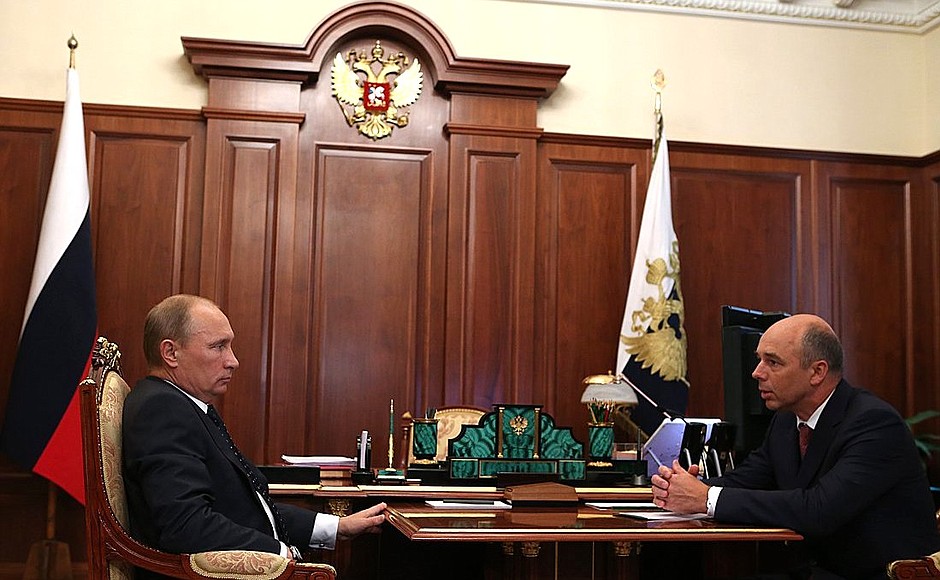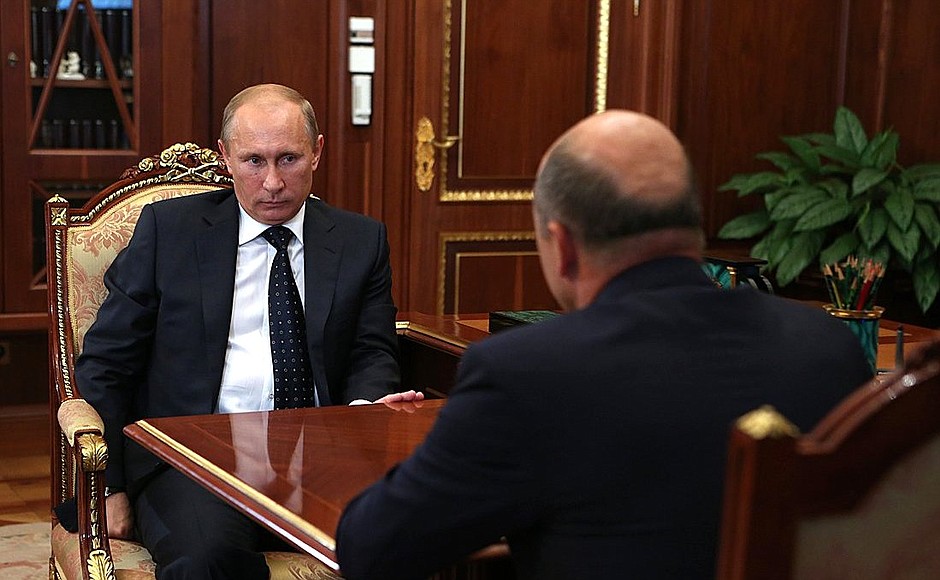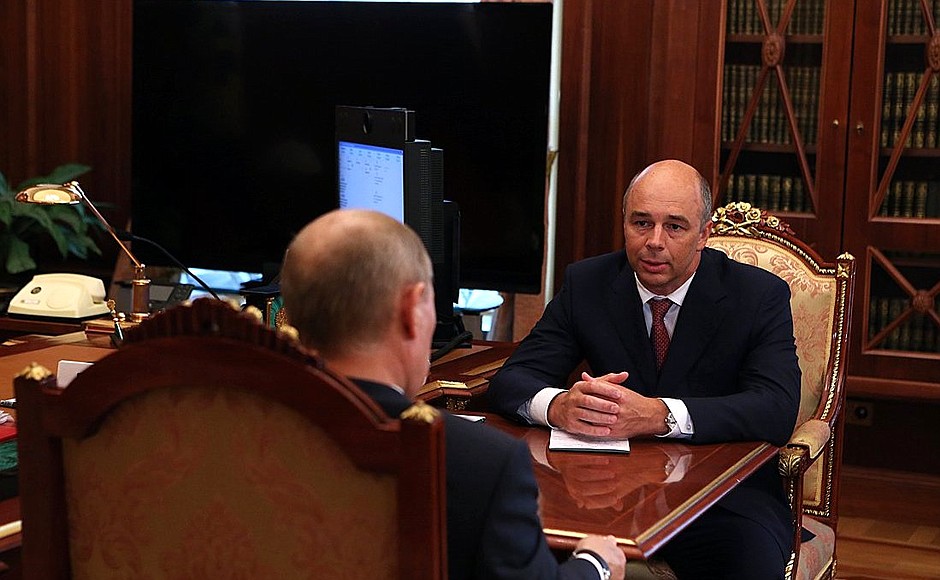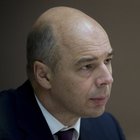* * *
President of Russia Vladimir Putin: Mr Siluanov, you should be approaching the final stage of the work on the federal budget, the country’s main economic law for the next two years, and it is common in such situations for differences to appear between agencies and ministries. We have discussed the priorities of our fiscal policy many times, which are undoubtedly the main elements of our economic success as a whole.
How is the work progressing?
Finance Minister Anton Siluanov: Yes, indeed, Mr President, the work on the draft budget has entered its final stage. The Government has held a series of meetings on key fiscal policy issues, including those pertaining to the social sphere, the industry, the armed forces and the overall budget balance.
On the whole, the 2013–2015 budget is particularly complex because it is based on budget rules, which set limits on the expenses that we can afford. It is the right approach in the current unstable macroeconomic environment. Our task is to make sure that we are able to implement the budget and meet our obligations in full whatever the foreign economic situation and the oil prices. The draft budget that the Government is currently working on meets these requirements. You outlined out task in the Budget Address, and the draft meets those objectives.
Furthermore, the budget is made more complex by the budget manoeuvre we had to adopt in order to execute and implement your decisions, the executive orders of May 7 on increasing the salaries of public sector employees, as well as to address other important socio-economic issues. We redistributed the allocations within the budget so that the priorities you identified are included in the budget parameters.
In addition, in view of the tasks outlined in the Budget Address, we provided for a reserve in the next year’s budget in the amount of 200 billion rubles [over $6 billion] in the event of changes in the macroeconomic situation. We did not distribute those funds among the relevant ministries and agencies.
”Our obligations to society in full, in all areas, is our absolute priority. That includes the pension system, our pension obligations, obligations to public sector employees, and our plans to modernise the armed forces. ‘
Vladimir Putin: Let’s say, in the event of market changes, not the macroeconomic situation. We must make certain that the macroeconomic situation remains unchanged.
Anton Siluanov: That’s right, in the event of market changes, such as a drop in the oil prices or a slowdown in the growth of the global economy. That would have a negative effect on Russia. Therefore, we have made provisions for such developments and set aside sufficient reserve funds for 2013, just as in the current year.
We will hold a meeting of the Budget Commission in the near future; the Government meeting on the budget is planned for late September, and we will submit a draft budget to the State Duma by October 1, in accordance with the legislation.
Vladimir Putin: Mr Siluanov, you know what my position is, I have already informed you and all of our colleagues, but I want to repeat once again that meeting our obligations to society in full, in all areas, is our absolute priority. That includes the pension system, our pension obligations, obligations to public sector employees, and our plans to modernise the armed forces. I understand that jointly with the Defence Ministry you have found some quite flexible instruments to address all the challenges we are facing in this area. There may be some changes related to the industry’s readiness or the lack of it to fulfil the orders. Industrial enterprises also need new equipment and we have allocated substantial resources for that as well.
However, I want to emphasise so that you and your colleagues understand very clearly, that in order for us to feel confident we must fully comply with the main macroeconomic indicators, which include internal and external debt, the budget deficit and some other parameters. I want to draw your attention to this, as well as all your colleagues in the ministries and departments who will now be tackling a highly demanding but very important and necessary task of coordinating these issues with the Finance Ministry.
Anton Siluanov: These have been our guiding principles in drafting the budget. The three-year budget stipulates cutting the budget deficit from 1.5% in 2013 to 0.1 in 2015.
Importantly, the reduction will also affect the so-called non-oil and gas budget deficit, that is, our dependence on oil and gas. The non-oil and gas budget deficit will be brought down to 8.6% of GDP by 2015. This is also a positive trend, which we will continue aiming to reduce the non-oil and gas deficit to 6–7% in the coming years.
Vladimir Putin: This is a realistic target and we should aim to achieve it and to realise these plans.
<…>



